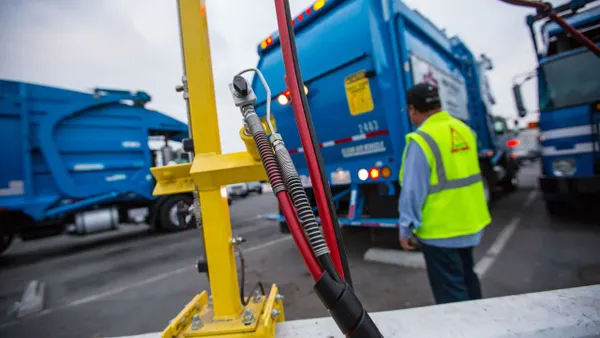Dive Brief:
- In 2016, the U.S. wasted the equivalent of 6 million turkeys, according to the Natural Resources Defense Council (NRDC). That much trashed turkey is worth about $293 million. Each year, the U.S. throws out around $218 billion of food.
- To combat food waste on a consumer level, the Save the Food campaign — a partnership between and the Ad Council — launched the "Guest-imator." This interactive online tool helps home chefs assess the right amount of food to prepare without generating excess waste.
- The tool includes options for how many guests are attending, how big their appetites are, how many meals worth of leftovers you want and whether the meal will be turkey-based or vegetarian. From there, users can select specific dishes they want to prepare and generate a detailed menu with specific food waste reduction tips.
Dive Insight:
Between hosting large meals and shopping both online and in stores, this time of year is often one of the most wasteful.
The 6 million turkey estimate is equivalent to about 200 million pounds of turkey meat, according to Dana Gunders, a senior scientist at the NRDC and author of the "Waste Free Kitchen Handbook." Gunders said it was likely that number would stay the same in 2017.
"It doesn't necessarily take high-level data to look around and just see how much food does wind up going to waste during the holidays," she said in an interview.
This is the latest in a series of creative campaigns from Save the Food and in line with recently published research from the NRDC. After conducting a multi-city study, the organization found that a majority of food being wasted in homes was "potentially edible" and leftovers were one of the most commonly neglected categories.
The boggling problem of food waste is no secret, especially in the waste industry. While the jury is still out on how to best reduce, recover, collect and process food waste, there is general agreement that sending organic material to a landfill or waste-to-energy facility isn't the best option.
"We don't want to see [food waste] go to landfills. That would be a huge waste of nutrients, and it also creates more greenhouse gas emissions," Gunders said. "We certainly believe in closing that loop."









